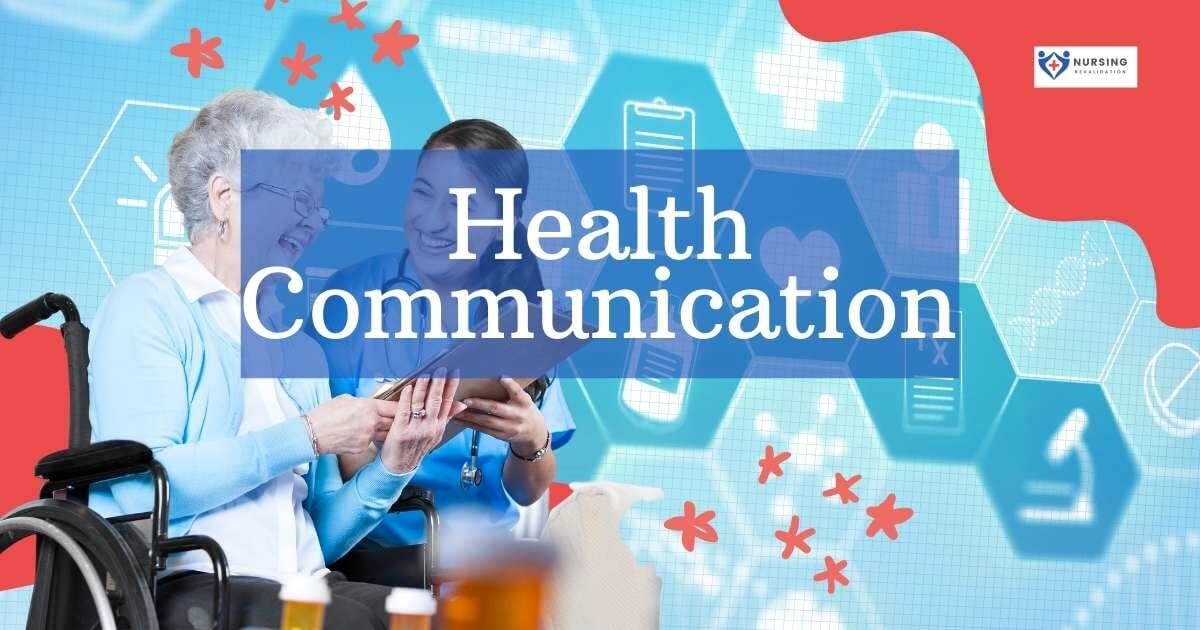What is health communication?
Health communication is described as methods and tactics for informing people about health care facts and best practises with the aim of maximising patient health outcomes and enriching personal and community behaviours and public health practices.
Importance of Communication in Healthcare
Effective communication in healthcare organisations begins with the recognition of the significance of listening to one another,
Medical experts, as a group, have a lot of information and experience. When providers rush from one appointment to the next without taking the time to listen and communicate effectively with patients, when patients feel unsafe, when care teams store medical information incorrectly, or when health organisations fail to hire interpreters for cross-cultural communications, that wellspring goes untapped.
In health care, effective communication is critical. Accurate diagnosis and treatment decisions are made possible through open, honest communication between the patient and the practitioner. Similarly, clear, confidential communication among members of a care team (which frequently includes patients and various clinicians) leads in care that is delivered quickly and ethically without jeopardizing confidentiality. Organizations with strong communication policies can enrich their patients’ health, while those that don’t have effective procedures in place can negatively impact patient well-being. Health care professionals and institutions need to recognize the importance of communication in health care in order to thrive.
How to practice effective communication in health care?
In health care, effective communication can be the difference between life and death. Learning more about types of communication in health care, barriers to communication in health care, and evidence-based techniques for effective communication in health care today can help health administrators and other healthcare workers. They are following ways of achieve better communication.
- To receive effective treatments, patients must feel safe enough to communicate honestly and openly with their healthcare providers.
- Care providers must ensure that patients receive the best possible care, providers must communicate treatment plans and health education in a clear, accessible, and empathic manner.
- For maintaining patient confidentiality, administrators and providers must exchange information in an ethical and responsible manner.
- To address communication barriers between stakeholders, healthcare organisations must use culturally responsive strategies.
Types of communication in healthcare
There are following types of healthcare communication
Verbal communication
Successful verbal communication occurs when an individual uses a combination of words or writing to pass on information to a specific recipient.
Non-verbal communication
Successful non-verbal communication occurs when an individual does not use words and still successfully passes on information to a specific recipient.
Written communication
Whether it is an email, a memo, a report, a contract, etc. all forms of written communication have the same goal to disseminate information in a clear and concise manner for better healthcare delivery.
Listening
The act of listening is frequently included among the various forms of communication. Active listening, on the other hand, is possibly one of the most crucial sorts of communication because we can’t properly engage with someone if we can’t listen to them.
Visual communication
Visuals, such as pictures, drawings, charts, graphs and diagrams, can be effective tools for communicating health information. Complex information is represented in a more understandable and appealing way with the use of visuals. They can also be used to reinforce health messages that have been written or spoken.
Purposes of Health communication
Communication in health, social care and early years settings has many purposes such as:
- To promote relationships and offer support
- Explaining procedures
- To get to know service users and their needs
- Promote interaction between group members
- To negotiate and liaise with service users, their family members, colleagues and a range of professionals
Effective communication begins from the very inception and is sustained by professionals who lead by example. Your company will be better positioned to offer exceptional patient care if it establishes a foundation of meaningful communication at all levels, from entry-level to executive management.
If you are a healthcare professional or a part of such organization, you must possess excellent communication skills. Nursing Revalidation provides CPD accredited health communication courses to enhance your communication so, you can give proper care to your patients.


